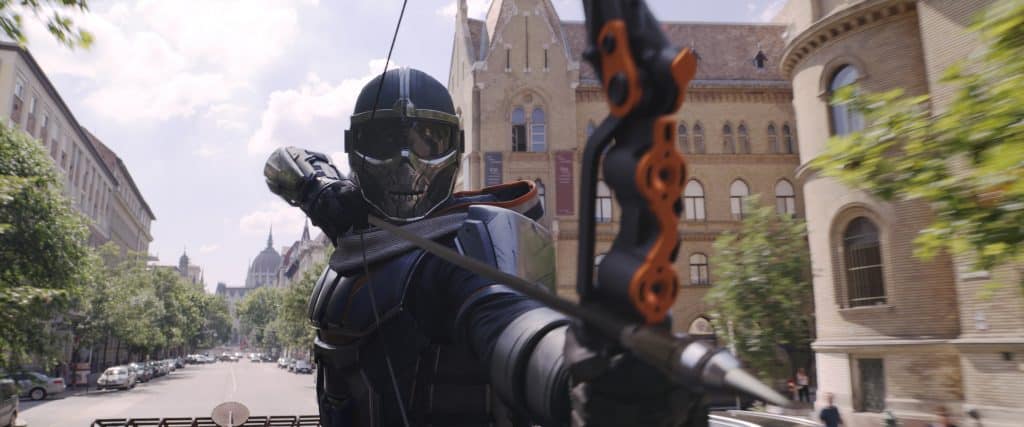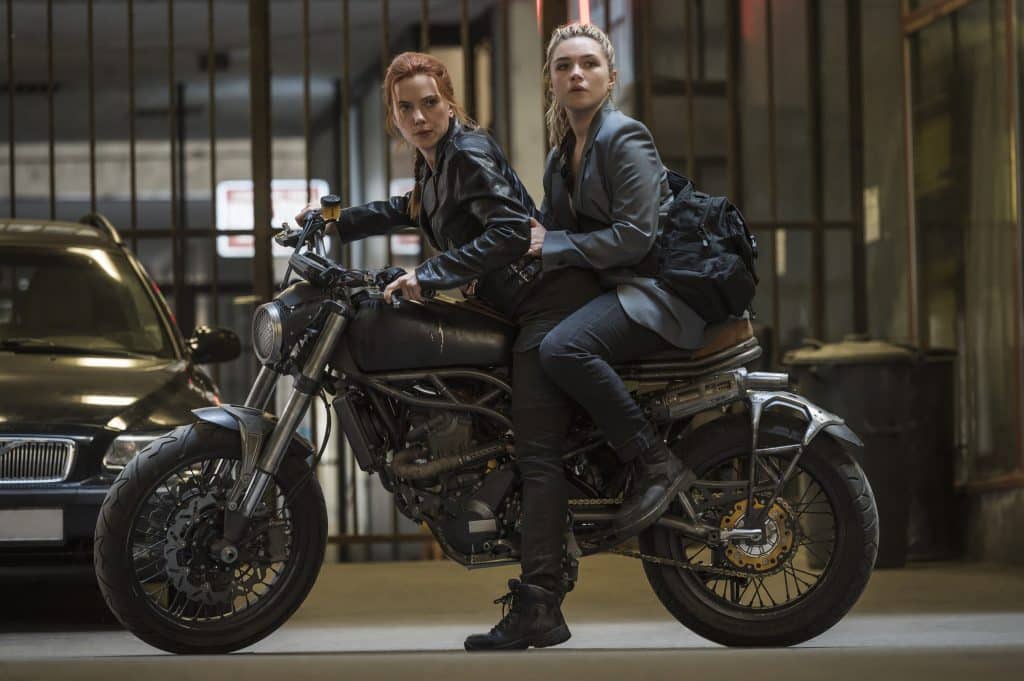Read also:
How to Watch FX Live Without CableHow To Watch AMC Without CableHow to Watch ABC Without CableHow to Watch Paramount Network Without CableThe MCU’s latest delivers what you want, but feels a little bit too late.
Some will complain about the lack of stakes in Black Widow. After all, even more so than typical MCU fare, Natasha Romanoff’s (Scarlett Johansson) fate never stands in doubt. She will, of course, survive. Not because she’s the good guy, but because we already know how she dies, thanks to Avengers: Endgame (aka the biggest movie of all time).
I am not one of those people. As usual for the MCU, the stakes that interest me have far more to do with the interpersonal than the global. No, the disappointment of this prequel is imagining how much richer it could’ve been had it reached theatres just after Captain America: Civil War, when it takes place, and not as a prequel some five years later.
Still, Black Widow exists enough as a separate entity, one can largely ignore the larger continuity issues and simply focus on the work itself. By that marker, it ends up a solid spy actioner that concentrates more on Widow as spy than super hero.
[The opening credits are] nasty stuff made more uncomfortable by both implication and our current cultural obsession with secret sex rings and human trafficking.
Opening on a flashback (in a prequel no less), Black Widow lays out the details of young Natasha’s (Ever Anderson) life. An operative from childhood, she spent three years living like The Americans with her false father Alexei, aka the Red Guardian (David Harbour), mother Melina (Rachel Weisz), and younger sister Yelena (Violet McGraw as a child, Florence Pugh as an adult). When the mission ends, she ends up tossed into the Red Room program. Her training there, alluded to in other films, ends up confirmed in a montage of images, short video clips, flashes of redacted files, and grainy photos as the opening credits roll—false identities, training that bordered on abuse, forced hysterectomy, and endless propaganda.
The (inaccurate) rap on the modern superhero film juxtaposition has been the MCU is all jokes and nothing taken seriously, while the DCEU is all grimdark with nary a smile to be found. This opener makes a strong case for why this is an oversimplification: it’s nasty stuff made more uncomfortable by both implication and our current cultural obsession with secret sex rings and human trafficking. The movie doesn’t dwell on it and it’s over in maybe four minutes’ time, but it leaves an impression.

From there, Widow trots around the globe as Yelena follows in her surrogate sister’s footsteps and (somewhat accidentally) defects from her Russian spy team. The two reconnect, reassemble their fictional family, and attempt to overthrow the modern Red Room led by former friend/handler Dreykov (Ray Winstone) and protected by the silent Taskmaster (clearly the movie wants this to be a secret so no spoilers from us).
The film evokes, in plot but never style, the Bourne films, especially the second and third installment. Winstone plays almost exactly like Brian Cox’s Ward Abbott with a gloriously unapologetically “only in the movies” Russian accent on top. The movie’s pseudo-scientific two moments in the future sci-fi take on indoctrination feels like a Treadstone 2.0.
Oddly, for a film franchise long derided as being pro-government, pro-military-industrial complex, one of the biggest ways it breaks from Bourne comes from how it judges the people at the control rooms. There are no Joan Allen or Julia Stiles types. No one is “good deep down.” They’re either trying to make amends (Natasha), largely at peace with their past actions (Yelena, Alexei), fully under the direction of their handler (all the other Widows, Taskmaster) or actively making things worse (Dreykov, the briefly seen General Thunderbolt Ross (William Hurt)). There seem to be no real good eggs on the inside.
By this point, Johannsson feels so comfortable in Romanoff’s skin that it lends the film a strangely naturalistic feel.
Director Cate Shortland and writer Eric Pearson (scripting from a story by Jac Schaeffer and Ned Benson) end up way more interested in how society treats girls and women than anything specifically about governments or international politics. They seem to be particularly focused on how men can focus on their personal glories as a means of denying the horrors of the patriarchy and how that say institution insidiously pits women against one another while standing back to reap the rewards.
To swing back around to style, Shortland and cinematographer Gabriel Beristain don’t ape Greengrass’s Bourne shakes and quick cuts, nor attempt anything of a similar level of visual bravura. It isn’t generically MCU Stage 1 house style either though. Sometimes that’s good, as in the already noted effective credits sequence. At other times, it leads to some visual confusion, especially during a fight scene in which Johansson faces off against a dozen or so Red Room graduates under the glare of a red-light gel.
By this point, Johansson feels so comfortable in Romanoff’s skin that it lends the film a strangely naturalistic feel. Pugh, on the other hand, seems to be pushing plenty of effort into her work as Yelena, which adds a nice layer of meta to their scenes together. The big sister who feels like she finally knows her place in the world and the younger sister nipping at her heels. Harbour is a gas as the vain self-mythologizing Guardian, although at times you wish Black Widow would let him access the sense of sadness and betrayal that the film only fleetingly notes.

At 135 minutes, the film rarely feels slow. That said, for an over two-hour movie, it has strange gaps and incomplete thoughts. For instance, a particular bit of scientific phenomenon bookends Widow. When it shows up in the first scene it has Chekhov’s gun written all over it. However, that never comes to pass. Instead, the movie only image checks it in its closing moment. Charitably, it’s likely a visual motif meant to evoke family, but Widow never justifies its prominent placement in the opener or where it ends up in the final moments.
Still, viewers will find everything that has made the MCU so satisfying and popular here. The interpersonal interactions work well. The humor is quick and light with Johansson seeming particularly adept at the sly one-liner. The action setpieces have a welcome reduction in scale, even as they take to what amounting to a floating man-made city. If one must place it amongst its fellow MCU offerings, it is a solid mid-tier offering buoyed by Johansson’s easy comfort in her own (and Romanoff’s skin).
Black Widow hits theatres and Disney+ (for a $30 Premier Access added charge) July 9.